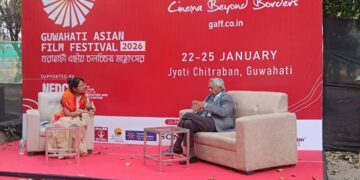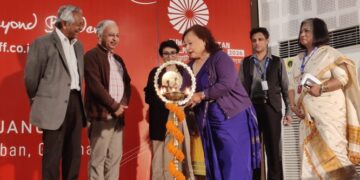A video clip featuring some Bangladesh Army soldiers dragging an injured Awami League supporter in Gopalganj today rekindled memories of a photograph from Bangladesh’s distant past when it was still East Pakistan.
Social media was flooded with a black-and-white photograph of Pakistani soldiers carrying a dead freedom fighter. This snapshot was from Bangladesh’s bloody liberation war.
Till 5:30 pm IST, there was no official count of Awami League supporters who died as a consequence of the Army opening fire on them after violence spiralled out of control in Gopalganj.
What is, however, clear is that the National Citizens’ Party’s “long march” to Gopalganj was clearly aimed at provoking the Awami League and, in the process, shore up flagging popular support.
The Mohammad Yunus-led interim regime did nothing to prevent the long march whose violent details – over 20 killed in Army firing – began to emerge in the evening.
Reports from Gopalganj and nearby districts, which are Awami League strongholds, indicate that the local people have blocked all roads out of this disturbed zone.
Several NCP supporters were said to have been trapped even as their leaders – the Sarjis Alams, the Hasnat Abdullahs, the Akhtar Hossains and a few others – were seen being allowed to enter the bellies of armoured personnel carriers by soldiers in battle fatigues.
The biggest question that faces Bangladesh today – and certainly its witless chief General Waker-uz-Zaman – is: who ordered the soldiers to open fire on unarmed civilians and Awami League supporters? Two individuals must be held accountable – Mohammad Yunus and Gen Zaman.
The Army chief’s culpability stands out for, on August 5, after packing of Sheikh Hasina to India, he took to grandstanding, promising that Bangladesh and Bangladeshis were now his responsibility and that no harm would come to the people.
And yet, over the last 11 months, the Army failed to protect the lives of ordinary Bangladeshis who became targets of murder, rape and other forms of gratuitous violence.
In the last few months, as mob violence and killings became the order of the day, Gen Zaman remained unmoved and unfazed, refusing to crack down in ways that would restore law and order. Indeed, his willing inaction, led to a state of utter drift; Bangladesh turned into a Hobbesian state of nature.
When the proposed “humanitarian corridor” issue turned politically hot, Gen Zaman played to the gallery yet again, sending out a message that no such passage would be allowed to operate near the Bangladesh-Myanmar border.
His staff issued a denial when it was suggested that instead of a “humanitarian corridor” the Army secretly favoured a “military operations zone” even as nothing was done to prevent the Bangladeshi political and military establishment to delink themselves from the Arakan Army.
Essentially, Gen Zaman quit being an Army officer and took on the mantle of a politician.
To him, survival – by wheeling-dealing with his brother officers, politicians of all hues and fundamentalists of all shades – was the prime motivation, even at the cost of reducing Bangladesh into an unsafe and uncertain country.
He is willing to cooperate with external forces to aid the Arakan Army in their adventurism in Myanmar’s Rakhine State and beyond, but he shies away from tags such as “humanitarian corridor” and “military operations zone” lest these become politically volatile and unleash uncontrollable energies. He is willing to be in bed external forces and allow the use of his Army, but he lacks the courage to stop being used as a proxy.
Let us now focus on Yunus. Mohammad Yunus was placed at the head of the interim ‘government’ after a regime change operation by the United States deep state. Since then he has done everything to further the interests of the US which was able to get a solid foothold in Bangladesh for the first time since 1971.
He brought together a bunch of incompetent men and women who contributed to paralysing governance, in the name of so-called reforms.
He allowed the deepening of grievances, widened the political divide, set free Islamist terrorists who the Hasina regime had imprisoned, did nothing to empower and revitalise the police, gave carte blanche to the students-turned-politicians to extort from all categories of businesses and, most importantly, imperiled the citizens whose safety and security he refuses to protect or guarantee.
Yunus’ only noteworthy achievement has been to constantly deepen anti-India sentiments. He knows that this strident and vocal anti-India sentiment will ensure unqualified support from Islamists of all shades.
Indeed, a strange and fierce form of radical Islam has dug deep roots in Bangladesh and there is no knowing how and when this force will assume a deadly character that could plunge this part of South Asia into prolonged instability.
Eleven months should have been sufficiently long to stabilise a country where regime change was effected by a “meticulously designed” conspiracy hatched abroad.
Both Gen Zaman and Yunus have, individually, failed to provide succour to Bangladeshis and take measures that could have healed a deeply divided polity.
The state continues to remain against the nation. For this, they will have to pay a cost. And a heavy one at that.















